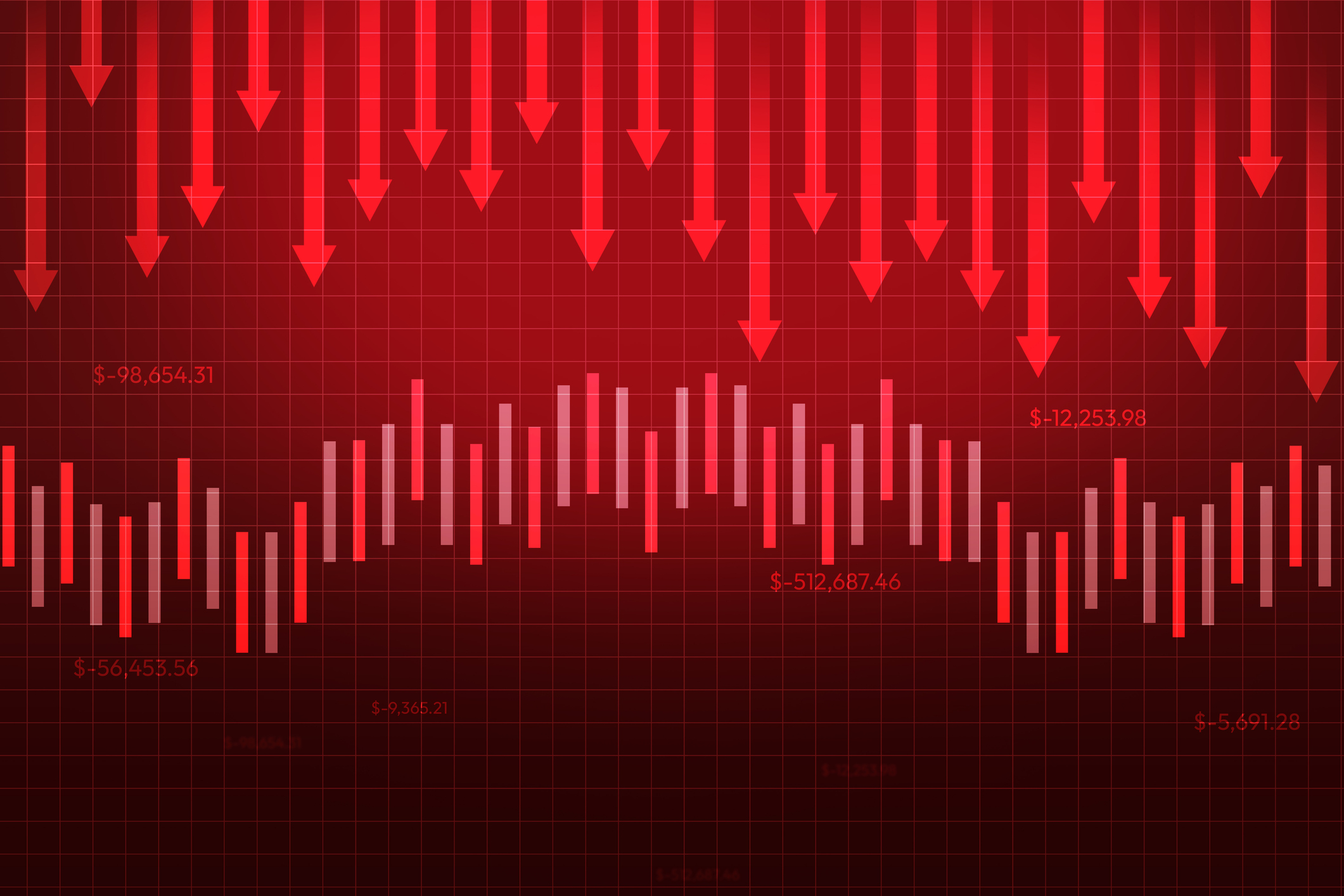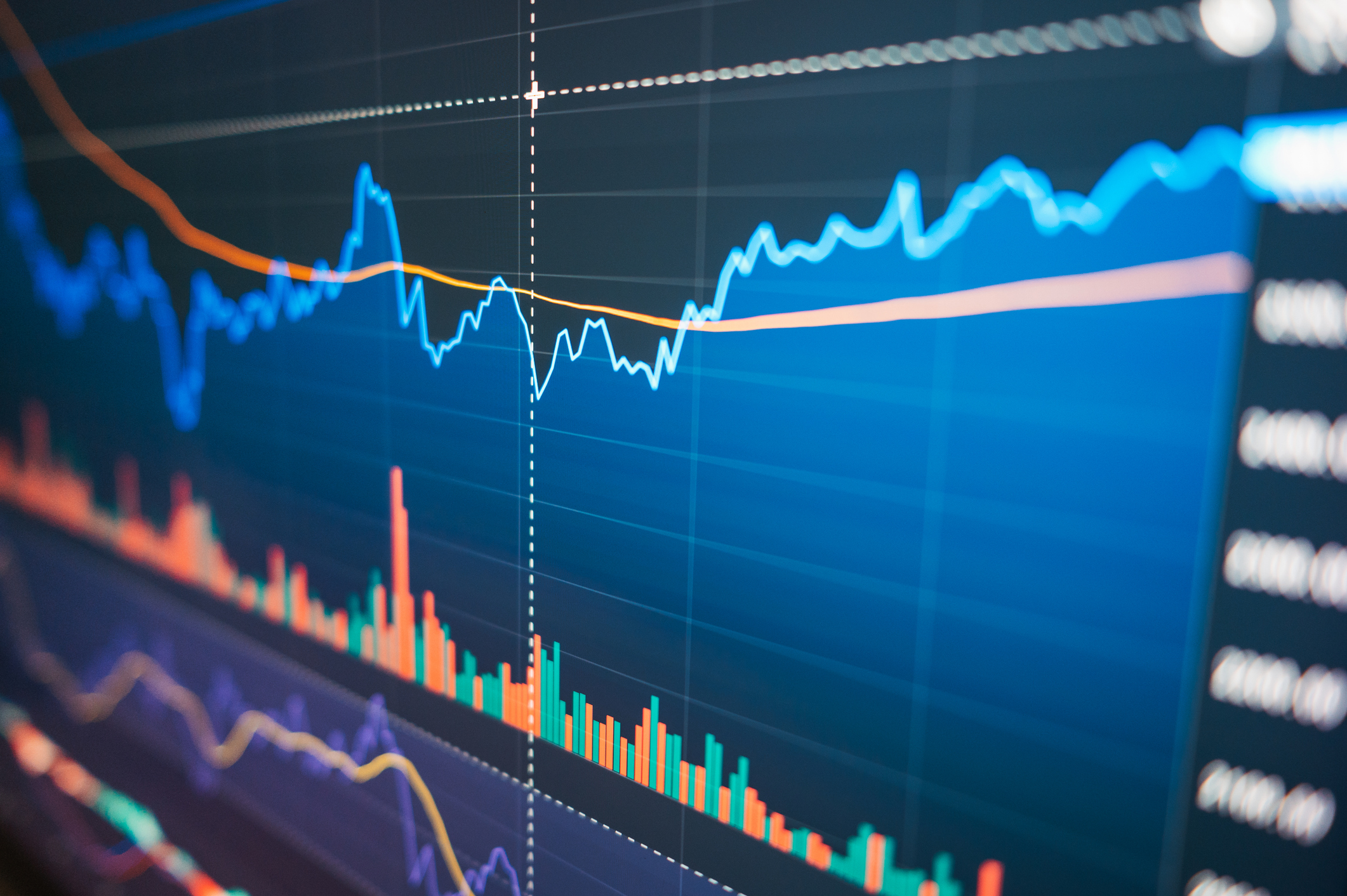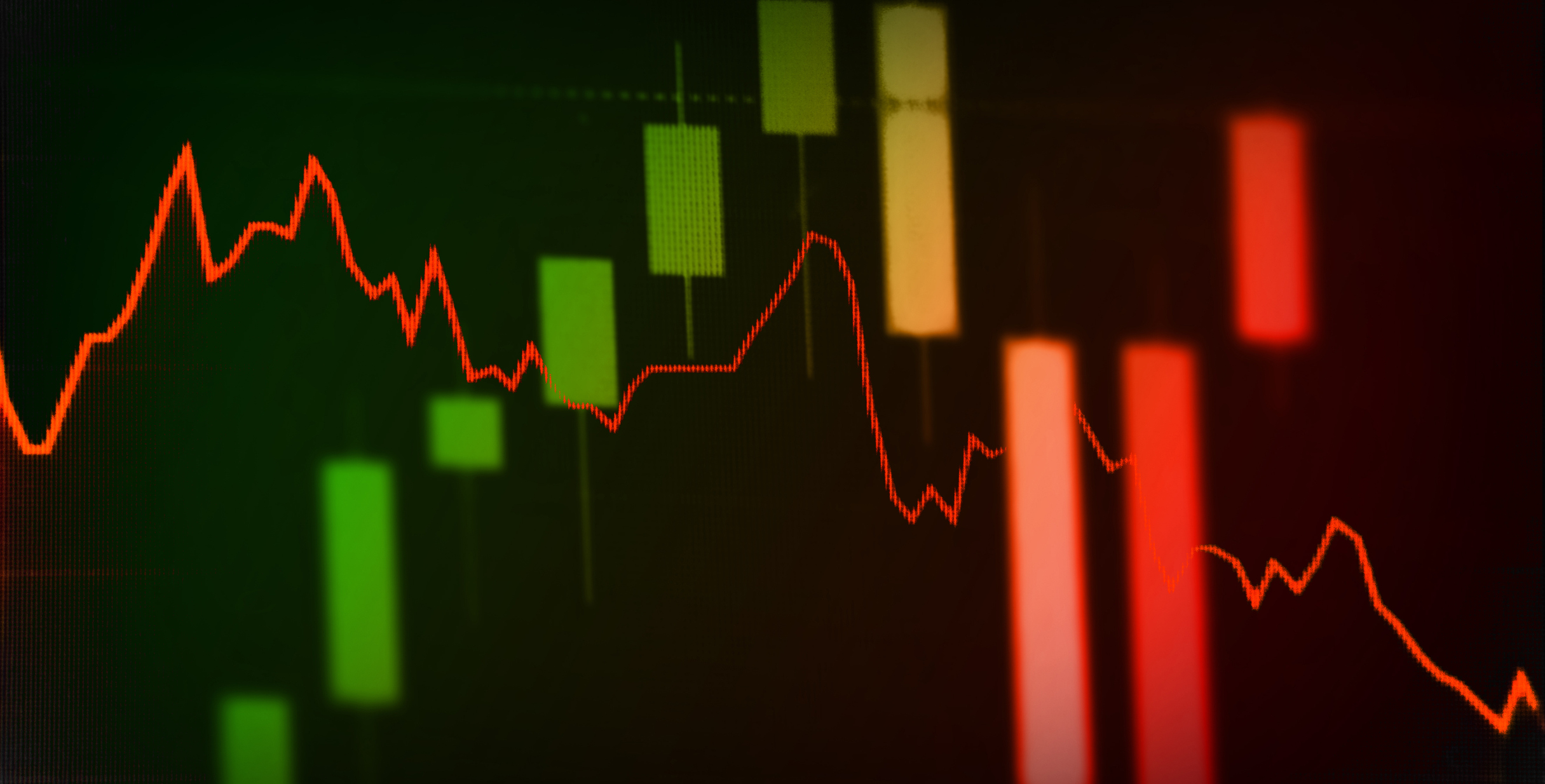Big Pharma at a Discount
These five drug stocks should produce healthy returns.
Profit and prosper with the best of Kiplinger's advice on investing, taxes, retirement, personal finance and much more. Delivered daily. Enter your email in the box and click Sign Me Up.
You are now subscribed
Your newsletter sign-up was successful
Want to add more newsletters?

Delivered daily
Kiplinger Today
Profit and prosper with the best of Kiplinger's advice on investing, taxes, retirement, personal finance and much more delivered daily. Smart money moves start here.

Sent five days a week
Kiplinger A Step Ahead
Get practical help to make better financial decisions in your everyday life, from spending to savings on top deals.

Delivered daily
Kiplinger Closing Bell
Get today's biggest financial and investing headlines delivered to your inbox every day the U.S. stock market is open.

Sent twice a week
Kiplinger Adviser Intel
Financial pros across the country share best practices and fresh tactics to preserve and grow your wealth.

Delivered weekly
Kiplinger Tax Tips
Trim your federal and state tax bills with practical tax-planning and tax-cutting strategies.

Sent twice a week
Kiplinger Retirement Tips
Your twice-a-week guide to planning and enjoying a financially secure and richly rewarding retirement

Sent bimonthly.
Kiplinger Adviser Angle
Insights for advisers, wealth managers and other financial professionals.

Sent twice a week
Kiplinger Investing Weekly
Your twice-a-week roundup of promising stocks, funds, companies and industries you should consider, ones you should avoid, and why.

Sent weekly for six weeks
Kiplinger Invest for Retirement
Your step-by-step six-part series on how to invest for retirement, from devising a successful strategy to exactly which investments to choose.
It's plain to see why nobody loves Big Pharma these days. The brand-name-drug companies are barreling toward a "patent cliff" as more than $130 billion in products go generic over the next few years. Washington is rumbling about slapping new taxes on drug makers. ObamaCare, thought to be on its deathbed after Republican Scott Brown's stunning victory in the race for a U.S. Senate seat from Massachusetts, has been resuscitated. As for the shares themselves, the sector trailed Standard & Poor's 500-stock index by 25 percentage points over the past year.
It's that very unpopularity, though, that captures the attention of contrarian-minded investors. The drug sector is certainly cheap. On average, the stocks trade at 11 times estimated 2010 earnings, 18% less than the overall market's price-earnings ratio. Analysts expect earnings for the industry to rise an average of 8% this year. Plus, Wall Street isn't all that worried about health-care reform. The industry has already made a deal with the Obama administration to offer modest discounts in exchange for expanded coverage. The impact of reforms, says Barclays Capital analyst Anthony Butler, should be "limited and manageable."
Other pluses. Several mega mergers last year restocked the pipelines of the largest firms and helped them diversify with biotech drugs and other medicines with longer patent lives. Companies are also slashing billions from their cost structures and outsourcing more testing and manufacturing to offset slowing sales. And although the era of blockbuster drugs may never return, many firms are finding new revenue streams in niche products, vaccines and licensing deals.
From just $107.88 $24.99 for Kiplinger Personal Finance
Become a smarter, better informed investor. Subscribe from just $107.88 $24.99, plus get up to 4 Special Issues

Sign up for Kiplinger’s Free Newsletters
Profit and prosper with the best of expert advice on investing, taxes, retirement, personal finance and more - straight to your e-mail.
Profit and prosper with the best of expert advice - straight to your e-mail.
With the durability of the economic recovery still in question, investors may view drug stocks as relative safe havens. And even if drug shares go nowhere, investors can at least pocket some dividend income, with most of the stocks yielding better than 3%. Our picks for healthy gains (all prices are as of March 12):
Johnson & Johnson (JNJ): $64
Shoppers may know Johnson & Johnson for its Band-Aids and baby shampoo. But consumer products made up only one-fourth of J&J's 2009 sales of $61.9 billion. Medical devices and pharmaceuticals round out the pie, and analysts expect sales in the drug division to accelerate, thanks to a robust pipeline of new products and scant additional competition from generics through 2014. Drugs in advanced stages of development include new treatments for HIV/AIDS, hepatitis C and epilepsy. And J&J has made deals with biotech firms to develop treatments for cancer and Alzheimer's disease, as well as a genetically engineered "universal" flu vaccine that could work against all strains of the virus.
Wall Street expects J&J's earnings to grow 6%, to $4.92 a share, this year. That gives the stock a P/E of 13 -- an attractive price for a company with such impeccable finances. J&J is one of only four nonfinancial U.S. companies with a coveted triple-A credit rating, and the $14.5 billion on the firm's balance sheet gives it a lot of flexibility to make acquisitions, buy back shares or hike its annual dividend of $1.96 per share, which gives the stock a yield of 3.1%.
Merck (MRK): $37
Merck was plodding along with average growth prospects before it hooked up with Schering-Plough in a $41-billion deal last year. But the new Merck has a much stronger pipeline, with drugs in development that could add $10 billion a year to the company's top line by 2015, says Credit Suisse analyst Catherine Arnold. With more than 20 drugs in late-stage development, Merck should easily be able to offset losses from big sellers, such as Singulair, an asthma drug that goes generic in 2012. Schering also has several biotech drugs in the works, including a new fertility treatment. And Merck is targeting $3.5 billion in merger-related cost savings by 2012.
Merck faces risks, of course, and the stock could drop if studies of its blockbuster cholesterol drugs, Vytorin and Zetia, produce unfavorable results. But even with dwindling sales from those products, Merck should generate earnings growth of nearly 9% a year, on average, through 2015, says Arnold. Her estimates are on the high side of Wall Street's forecasts, but with a P/E of 11, the stock still looks underpriced.
Roche (RHHBY.PK): $41
Investors may think of Roche as a maker of brand-name drugs. But thanks to its 2009 acquisition of Genentech, Roche is now a biotech giant. The $46.8-billion deal gave Roche, based in Basel, Switzerland, full rights to three top biotech cancer drugs: Avastin, Herceptin and Rituxan. Roche also makes Tamiflu, which flew off the shelves during the H1N1 pandemic, and just received U.S. regulatory approval for Actemra, a new rheumatoid-arthritis drug. Roche is also working on a promising diabetes medicine and is exploring new uses for its oncology drugs.
Roche's American depositary receipts, which trade on the pink sheets, go for 13 times forecasted 2010 earnings of $3.17 per ADR. That's a premium to the industry's P/E. But Roche's product line is heavy with biologic drugs that have long patent lives. And operating-profit margins in the pharmaceutical division, at more than 39%, are near the top of the industry. All told, earnings should rise an average of 12% a year through 2014, says Jefferies analyst Jeffrey Holford.
Novartis (NVS): $55
Novartis, which is also headquartered in Basel, takes a more varied approach to growth. A health-care conglomerate with $44.3 billion in sales last year, it's a major player in brand-name drugs, generics and vaccines. And it will become a dominant force in eye care once it completes the purchase, for $39 billion, of the shares of Switzerland-based Alcon that it doesn't already own. Novartis faces some key patent losses, including its top-selling drug, Diovan, which goes generic in 2012 and accounted for 21% of Novartis's $28.5 billion in pharmaceutical sales last year. But Novartis's pipeline is consistently ranked as one of the strongest in the industry, with 28 new drugs in late-stage development, and upcoming products should easily plug the patent hole, says Morningstar analyst Damien Conover.
Analysts see Novartis producing annual profit growth of about 5% after 2011, which is midrange for the industry. But that doesn't include much of the merger-related savings, says Holford. New chief executive Joe Jimenez is expected to focus on boosting Novartis's profit margins. And despite Novartis's exceptional pipeline, the stock trades at only 11 times estimated earnings of $4.78 per American depositary share, about the same P/E as its peers.
Teva Pharmaceutical Industries (TEVA): $61
While makers of brand-name drugs dread the patent cliff, Teva Pharmaceutical Industries, the world's largest maker of generic drugs, approaches it gleefully. The Israeli company expects the global generics market to grow from $80 billion to at least $135 billion by 2015. Over that period, it plans to double its annual sales, to $31 billion. And it aims to increase its brand-name drug business, now 30% of sales.
You might expect to pay a steep price for Teva, one of the fastest growers in the industry. But while the stock has climbed 40% over the past year, it trades at just 13 times estimated 2010 earnings of $4.55 a share. And with profits climbing 15% to 20% annually, the shares look like they have plenty of room to run.
Profit and prosper with the best of Kiplinger's advice on investing, taxes, retirement, personal finance and much more. Delivered daily. Enter your email in the box and click Sign Me Up.
-
 Look Out for These Gold Bar Scams as Prices Surge
Look Out for These Gold Bar Scams as Prices SurgeFraudsters impersonating government agents are convincing victims to convert savings into gold — and handing it over in courier scams costing Americans millions.
-
 How to Turn Your 401(k) Into A Real Estate Empire
How to Turn Your 401(k) Into A Real Estate EmpireTapping your 401(k) to purchase investment properties is risky, but it could deliver valuable rental income in your golden years.
-
 My First $1 Million: Retired Nuclear Plant Supervisor, 68
My First $1 Million: Retired Nuclear Plant Supervisor, 68Ever wonder how someone who's made a million dollars or more did it? Kiplinger's My First $1 Million series uncovers the answers.
-
 Dow Rises 497 Points on December Rate Cut: Stock Market Today
Dow Rises 497 Points on December Rate Cut: Stock Market TodayThe basic questions for market participants and policymakers remain the same after a widely expected Fed rate cut.
-
 Risk Is Off Again, Dow Falls 397 Points: Stock Market Today
Risk Is Off Again, Dow Falls 397 Points: Stock Market TodayMarket participants are weighing still-solid earnings against both expectations and an increasingly opaque economic picture.
-
 How to Invest for Rising Data Integrity Risk
How to Invest for Rising Data Integrity RiskAmid a broad assault on venerable institutions, President Trump has targeted agencies responsible for data critical to markets. How should investors respond?
-
 What Tariffs Mean for Your Sector Exposure
What Tariffs Mean for Your Sector ExposureNew, higher and changing tariffs will ripple through the economy and into share prices for many quarters to come.
-
 Stock Market Today: S&P 500, Nasdaq Hit New Highs on Retail Sales Revival
Stock Market Today: S&P 500, Nasdaq Hit New Highs on Retail Sales RevivalStrong consumer spending and solid earnings for AI chipmaker Taiwan Semiconductor Manufacturing boosted the broad market.
-
 Stock Market Today: Powell Rumors Spark Volatile Day for Stocks
Stock Market Today: Powell Rumors Spark Volatile Day for StocksStocks sold off sharply intraday after multiple reports suggested President Trump is considering firing Fed Chair Jerome Powell.
-
 The Best Health Care Stocks to Buy
The Best Health Care Stocks to BuyThe best health care stocks offer investors a defensive hedge in an uncertain market. Here's how to find them.
-
 Stock Market Today: Stocks Are Mixed Before Liberation Day
Stock Market Today: Stocks Are Mixed Before Liberation DayMarkets are getting into the freewheeling rhythm of a second Trump administration.